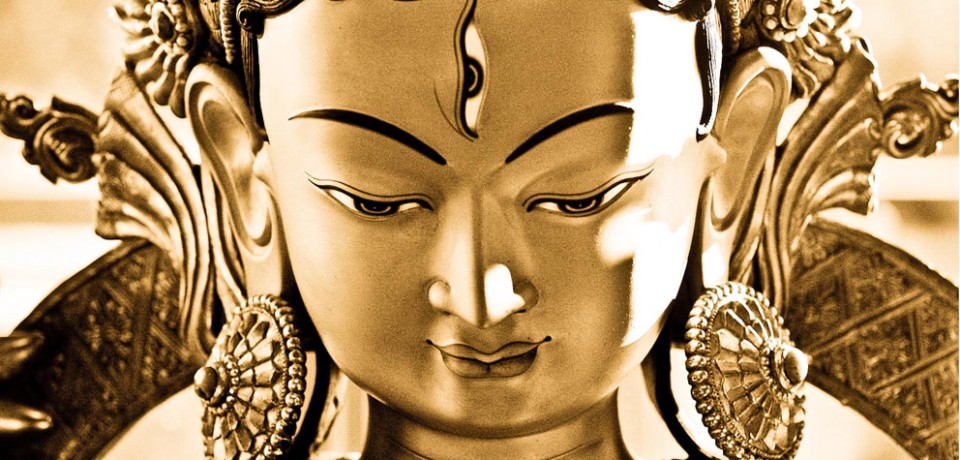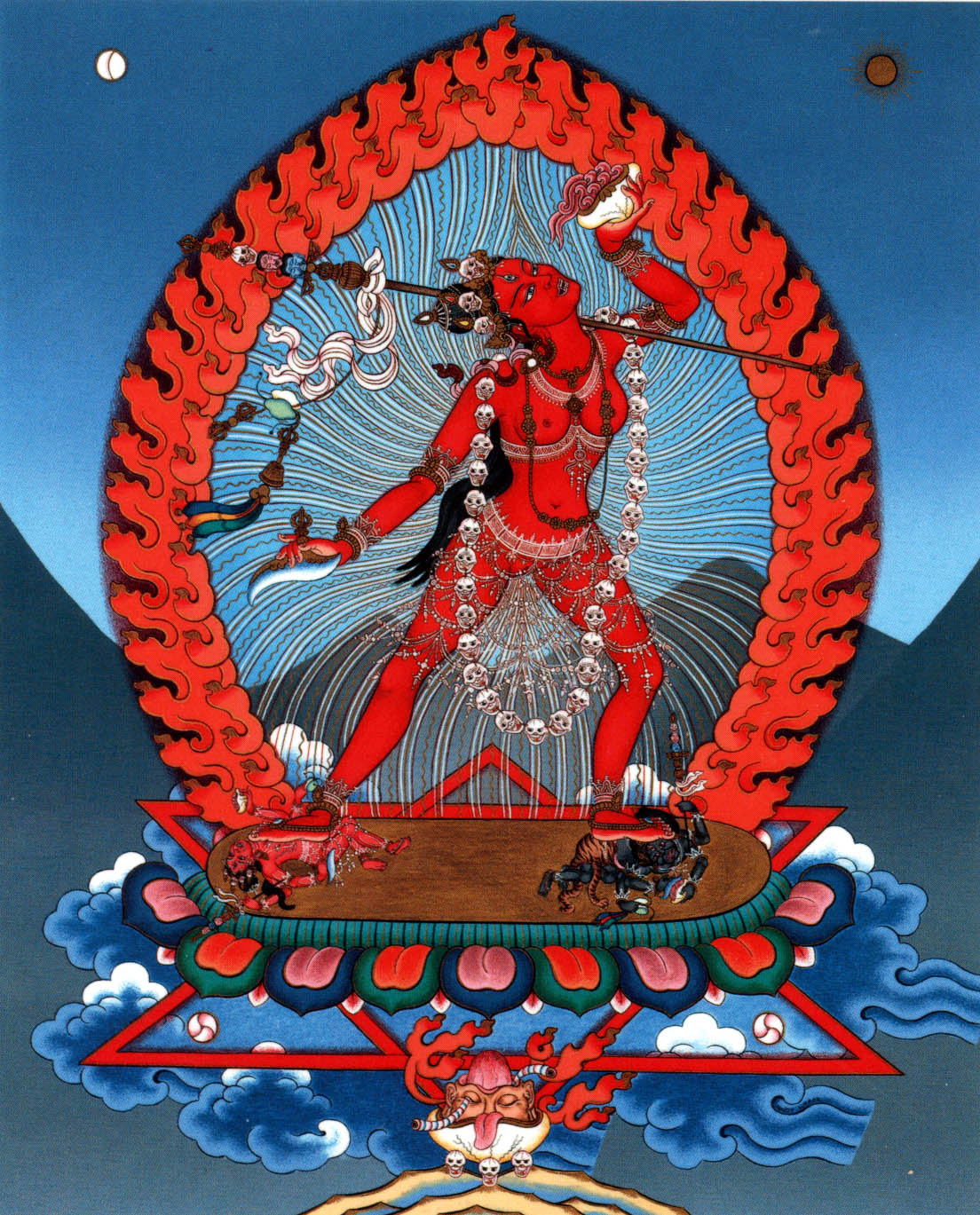Wisdom for the Dakinis / Yoginis
Dakini (Sanskrit) means: a female messenger of wisdom; a female embodiment of enlightenment.
Yogini (Sanskrit) represents both a female master practitioner of Yoga, and a formal term of respect for a category of modern female spiritual teachers (in both hinduism and buddhism) in eastern countries such as India, Nepal, and Tibet.
The dakini, in her various guises, serves as each of the Three Roots. She may be a human guru, a vajra master who transmits the Vajrayana teachings to her disciples and joins them in samaya commitments. The wisdom dakini may be a yidam, a meditational deity; female deity yogas such as Vajrayogini are common in Tibetan Buddhism. Or she may be a protector; the wisdom dakinis have special power and responsibility to protect the integrity of oral transmissions.
Tibetan Buddhists have a unique definition of the dakini as a role model of female enlightenment that doesn’t exist anywhere else. The dakinis are depicted as strong and fiercely independent. The Tibetan word for dakini, Khandro, literally means sky-goer, and it hints at the expansiveness of their view.
As yogic practitioners we gain inspiration by reading the lifestories of great and sublime teachers. This allows us to progress more swiftly along the spiritual path to our own personal liberation. Because the appearance of everything we can know and experience depends on causes and circumstances, ordinary individuals embarking on the path must do so through a gradual process.
In most spiritual teachings, it has been throughout history that they have been written primarily by men and for men. In fact, even the Creator is referred to in many of the world’s religions as the male aspect only as in: Father, Lord, God and Bramha. But our Creator is male and female – Alpha and Omega, God and Goddess. Therefore, it should be understood that spiritual teachings are important for both men and women and the benefits of them derived are equally available. Understanding further that we each have the yin and the yang energies within us, it makes sense to realize that both men and women have equal opportunity to know the One, the Creator.
It is my prayer that this site may be of some particular benefit in encouraging the many excellent female practitioners in the world to cultivate their noble qualities and, through the force of their practice, go on to become fully qualified teachers themselves. May this work bring immeasurable benefit to all living beings, who are all equal and able to realize their precious buddha nature.
Dakini Power
Tibetan Buddhism offers a unique premise that to be a woman can actually be favorable on the path to spiritual realization. Padmasambhava, the eighth-century pioneer of Buddhism in Tibet, reasoned that women are better equipped to realize the wisdom of the teachings. Women are able to dive into meditation much more easily than males. This is because many males are afraid of dropping the intellect. To suddenly just let that go and be naked in the meditation experience is frightening for them, whereas women seem to be able to manage it more naturally.

